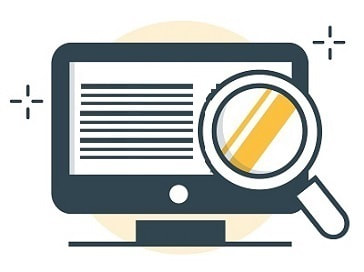Life Insurance For Smokers and Vapers
Whether you smoke cigarettes, cigars, use chewing tobacco, or e-cigarettes (vape), Life insurers will be considered a smoker. Our guide outlines the impact of smoking and vaping on buying Life Insurance and outlines everything you need to know to get insured.
Updated 17 May 2023
Summary
Our guide is published to outline what you need to know about smoking and life insurance and give you all the facts you need to make a better-informed decision when buying a policy. We cover:
Important: Before making any policy switch, it's essential to confirm that any exclusions you have on your previous policy will be covered on your new policy. This can catch people out who think they're covered but find themselves uninsured by exclusions. We are aware of New Zealanders switching policies without paying careful attention to any exclusions they may have. This has led to declined claims.
Summary
- Smoking in any form is a Life Insurance risk factor, and you'll almost certainly pay significantly higher premiums. We can't suggest which insurer is "best" for smokers because whether you smoke is only one consideration in your overall health assessment.
- The best approach to get the right policy at the best price is to gather several quotes and compare prices and cover.
- Our Life Insurance guide outlines how to do this. Contacting an insurance broker is also worthwhile to discuss specific needs and cover questions.
Our guide is published to outline what you need to know about smoking and life insurance and give you all the facts you need to make a better-informed decision when buying a policy. We cover:
- What counts as smoking or vaping?
- Can I get life insurance if I smoke or vape?
- Frequently Asked Questions
Important: Before making any policy switch, it's essential to confirm that any exclusions you have on your previous policy will be covered on your new policy. This can catch people out who think they're covered but find themselves uninsured by exclusions. We are aware of New Zealanders switching policies without paying careful attention to any exclusions they may have. This has led to declined claims.
Know This First: The Impact Of Smoking And Vaping On Buying Life Insurance
- The truth is simple - those who don’t smoke have an advantage over those that do when it comes to buying life insurance.
- When you apply for a life insurance policy, the insurer will conduct what is called medical underwriting, which is the process of asking you questions about your health and, in some cases conducting a medical exam during which they may weigh you, take blood, etc.
- One of the questions they will ask is, are you a smoker. Insurers ask this and other questions to determine your health status and gauge your risk. They then use this information to determine your premiums or if they will even offer you a policy.
- The older you are, the more health issues you have, the more expensive the life insurance will be, and in some cases, you could be declined for coverage.
- Smoking, whether it is tobacco or vaping, directly increases your risk profile to an insurer, and for that reason the price increases.
Video explainer: MoneyHub Founder Christopher Walsh explains what to know about smoking, vaping and life insurance in the video below:
|
Your guide to life insurance for smokers and vapers is published thanks to Life Direct
|
What counts as smoking or vaping?
Life insurance companies don’t typically differentiate between the types of nicotine. There isn’t a better type in their eyes. Whether you smoke cigarettes, cigars, use chewing tobacco, or e-cigarettes (vape) doesn’t matter; you will be considered a smoker. Even if you’re vaping to quit smoking, your life insurance company usually won’t consider that a smoke cessation tool.
Every life insurance company has different medical underwriting rules for various health conditions, and smoking is no different. Some insurance companies will allow limited use of cigars, such as a dozen cigars a year, but if you smoke cigars regularly, you could be considered a smoker and fall into that rating category.
Insurers differ in their assessment
Below are some examples of products that may get you classified as a smoker:
Every life insurance company has different medical underwriting rules for various health conditions, and smoking is no different. Some insurance companies will allow limited use of cigars, such as a dozen cigars a year, but if you smoke cigars regularly, you could be considered a smoker and fall into that rating category.
Insurers differ in their assessment
- One insurance company may consider you a non-smoker after no nicotine products for 12 months; others may require you to not use any nicotine products for three or even five years. Some insurance companies may allow chewing tobacco, and others may not.
- You may get non-smoker rates temporarily from one insurance company if you are actively trying to quit, while others may not.
- The specific rules around smoking, vaping, and other types of nicotine products may vary from one insurance company to another; one thing is generally true. If you use any of these products regularly, your life insurance premiums will be higher than those who do not, and you may have exclusions added to your policy related to your nicotine use.
Below are some examples of products that may get you classified as a smoker:
- Cigars
- Cigarettes
- Electronic cigarettes (also known as e-cigs, e-cigarettes, electronic nicotine delivery systems, vapes, or personal vaporisers)
- Nicotine patches or gum
- Marijuana
- Chewing tobacco
Do I have to tell the insurance company If I smoke or vape?
Insurers will, in most cases, check your medical history, so be honest when answering the questions about smoking and vaping. If you lie about smoking or vaping and become critically ill with a disease such as cancer, which could be caused by smoking or vaping, your life insurance claim could be denied.
One of the tests that can be performed during the medical exam outlined above will look for nicotine in your blood. This test looks for cotinine, a nicotine byproduct in your blood that is in the bloodstream longer than nicotine.
One of the tests that can be performed during the medical exam outlined above will look for nicotine in your blood. This test looks for cotinine, a nicotine byproduct in your blood that is in the bloodstream longer than nicotine.
Can I get life insurance if I smoke or vape?
In most cases, the answer is yes; you can get life insurance if you are a smoker or use vapes. However, the premiums you pay as a smoker can be significantly higher than for someone who is not a smoker. In fact, it can be twice or even three times as expensive for smokers than for non-smokers to buy life insurance per our policy price research.
If you are a smoker (by definition), it can be helpful to work with an experienced life insurance broker who can help you find the right life insurance product and insurance company. An independent agent will provide insight into how different companies view and rate those who use different nicotine products and how their underwriting rules will impact your premiums. It is easier to discuss such matters with a broker than an insurance company to find the most appropriate cover.
Remember - it is absolutely critical to be honest about your smoking or vaping history and frequency. Otherwise, you risk your life insurance claim not being paid in the case of your death and losing the financial protection you were trying to provide for your family and loved ones.
If you are a smoker (by definition), it can be helpful to work with an experienced life insurance broker who can help you find the right life insurance product and insurance company. An independent agent will provide insight into how different companies view and rate those who use different nicotine products and how their underwriting rules will impact your premiums. It is easier to discuss such matters with a broker than an insurance company to find the most appropriate cover.
Remember - it is absolutely critical to be honest about your smoking or vaping history and frequency. Otherwise, you risk your life insurance claim not being paid in the case of your death and losing the financial protection you were trying to provide for your family and loved ones.
The impact of quitting smoking or vaping on your life insurance costs
- If you give up nicotine entirely, it is possible that your life insurance company may reduce your rates after a certain amount of time. In general, you may be able to get more affordable rates as soon as a year after your last use, but some insurance companies have longer waiting periods or may not reduce your rates if you quit.
- If you are planning on quitting, a popular way to save money is to talk to a life insurance broker about which policies have the option to reduce your rates if you quit.
- If you want to be classified as a non-smoker, which will help keep your premiums low, you will have to quit smoking or vaping long before applying for life insurance to get the more favourable health classification and premium rates.
Smoking and Vaping Frequently Asked Questions
Smoking, vaping, chewing and puffing all make you a risk to a Life insurer - we answer common queries below:
How much more expensive is life insurance if I smoke, vape or use other nicotine products?
Smokers generally pay 2-3 times more for life insurance than non-smokers with similar age and health history, as indicated in our life insurance pricing comparison.
Can I still buy life insurance if I smoke or vape?
You can still get life insurance, but it will be more expensive, and there may be certain types of policies you cannot buy.
Why is vaping considered “smoking"?
If you vape, almost every major insurer will evaluate you as a smoker. One of the reasons is the lack of experience life insurance companies have with vaping. Since vaping is relatively new, insurers don’t know the long-term effects, so they classify vaping as a tobacco device because many vape juices contain nicotine, which can be tested for during a life insurance medical exam.
Related Guides
- Are you looking to insure for pre-existing conditions? This guide is not for you - our pre-existing medical conditions guide has you covered.
- Want to compare life insurance policy prices? Our comparison guide explains everything you need to know.
- Want to change or adjust a life insurance policy? Our when to cancel or change a life insurance policy guide outlines the must-know considerations.
- Considering buying an insurance policy from a broker? Our brokers vs insurers guide outlines the pros and cons of each option.





